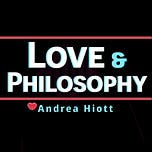Join Michael Wheeler and Mirko Prokop as they dive into Heidegger’s phenomenology and its relevance for cognitive science as well as Michael’s recent work in the nascent field of the cognitive arts and humanities. Touching on philosophical and existential questions about the nature of mind and our relationship to the world and others, they explore the structure of human experience, its bodily, biological and social dimensions and discuss how artistic improvisation and creativity can lead us to see authenticity as the basic dynamic of thinking.
00:00: Introduction and guest welcome
02:26: Michael Wheeler’s journey into philosophy
04:23: What is phenomenology?
07:17: Introspection
10:57: The transcendental in the light of history
14:35: Heidegger’s Kantian side
17:17 : Heidegger vs. Descartes
21:22: Dasein: Heidegger’s conception of the subject
24:36: Being thrown into a meaningful world
26:00: "Equipment" in Heidegger
29:00: Being-in-the-world: totalities of involvement
36:55: Disturbances and skillful coping
41:00: The primacy of "online intelligence“
45:46: How often do we experience flow?
50:52: The extended mind
01:00:15: McDowell on the personal and subpersonal
01:05:00: "Orthodox" cognitive science
01:10:00: Heideggerian Robots
01:12:36: Embodiment
01:18:57: Michael’s current work on authenticity
01:21:24: Anxiety: being thrown into a social world
01:22:03: Authenticity as the basic dynamic of thinking
01:26:29: The Cognitive Arts and Humanities
01:32:30: Biology, culture, and non-human animals
01:29:21 Integrating Cognitive Science with the Humanities
01:44:46: Concluding thoughts and personal reflections Mirko Prokop:
Michael Wheeler’s book Reconstructing the Cognitive World (2007, MIT Press): https://mitpress.mit.edu/978026273182...
John McDowell’s paper The Content of Perceptual Experience (1994, The Philosophical Quarterly): https://www.jstor.org/stable/2219740
Gilbert Ryle’s paper Improvisation (1976, Mind): https://www.jstor.org/stable/2253256 Miguel A. Sepúlveda-Pedro’s paper Levels and Norm Development: A Phenomenological Approach to Enactive-Ecological Norms of Action and Perception (2020, Frontiers in Psychology): https://www.frontiersin.org/journals/...
Further Reading: Julian Kiverstein and Michael Wheeler (eds.) Heidegger and Cognitive Science (2012, Palgrave Macmillan): https://link.springer.com/book/978023...
Cognitive Futures in the Arts and Humanities: https://cognitive-futures.com/











Share this post